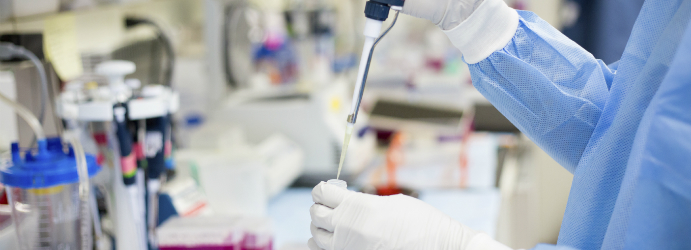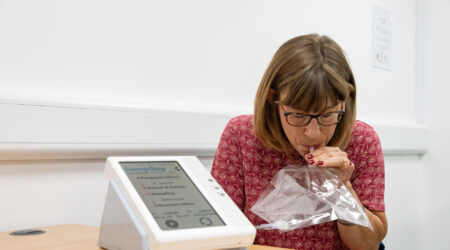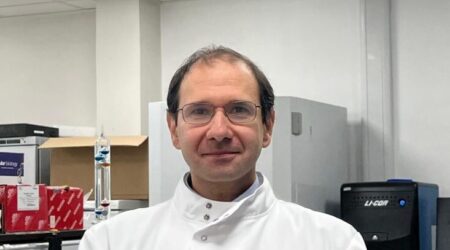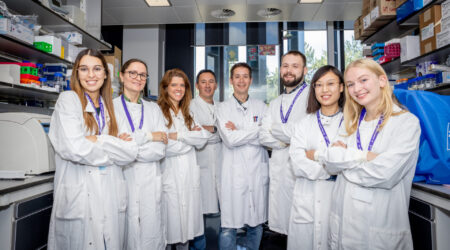Early detection saves lives. However, the symptoms of pancreatic cancer are vague, making it incredibly difficult for GPs to distinguish it from other less serious conditions. As a result, 80% of people with pancreatic cancer are diagnosed too late. Too late for treatment, too late to survive.
Developing new tools to improve the detection of pancreatic cancer would mean that more people are diagnosed earlier, giving them the chance to have life-saving treatment, and saving thousands of lives every year. This is why we are committed to sustained investment into the early detection of pancreatic cancer.
Previous research funded by Pancreatic Cancer UK and others has laid vital groundwork for progress in the early detection of pancreatic cancer. This is an exciting time as we have seen more progress in understanding pancreatic cancer over the last five years than the previous 50 years.
“We are on the edge of being able to realise really early detection of pancreatic cancer, which means more people will be able to benefit from treatments to improve their survival and have much more time with their loved ones.”
Through our early detection research, we aim to create a world in which as many people as possible are diagnosed at an early stage. To do this, we are focussing our research on two key areas with the aim to:
1. Identify and stratify at-risk groups
We know that some people are more likely to develop pancreatic cancer. This includes people with new-onset diabetes, a family history of pancreatic cancer, a pancreatic cyst or chronic pancreatitis. Identifying these people and offering regular monitoring where appropriate would help to spot any changes to their pancreas at an early stage, where treatment is more likely to be successful.
2. Improve early detection in the general (symptomatic) population
Over 90% of people with pancreatic cancer visit their GP multiple times in the two years before diagnosis. We desperately need new tests and tools to help GPs identify people presenting with vague symptoms who are more likely to have pancreatic cancer, so that they can be urgently referred for further tests.
I see the future as a combination of different markers, that can answer different questions. I think combining different tests and information will be really important.
Thanks to our supporters, we are making great strides towards improving the early detection of pancreatic cancer. There are currently promising tests in development using breath, blood and urine. It is vital we maintain this momentum to make much-needed breakthroughs in the early detection of pancreatic cancer.
Your support will once again be critical to spearheading the next stage of ground-breaking research into early detection.




